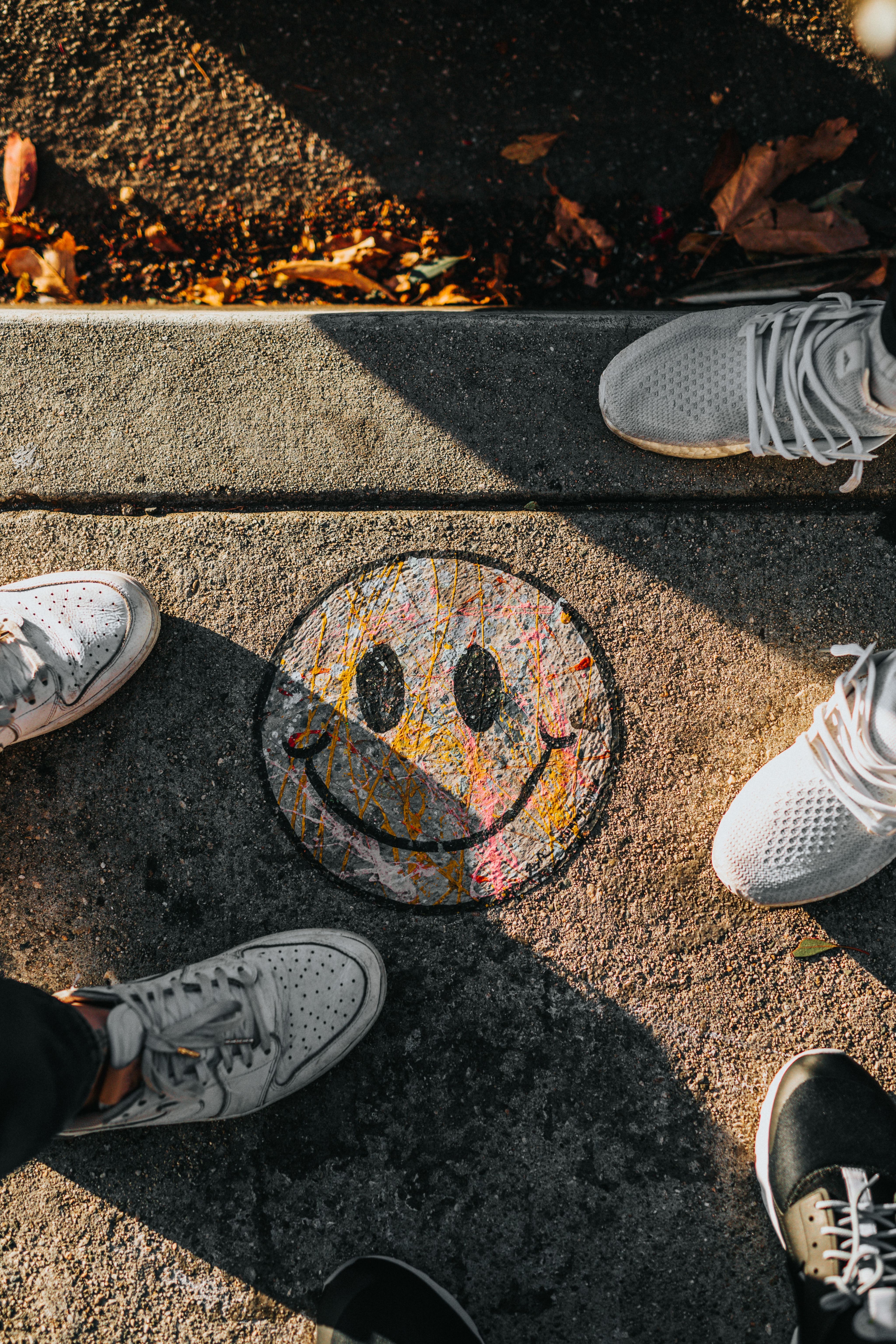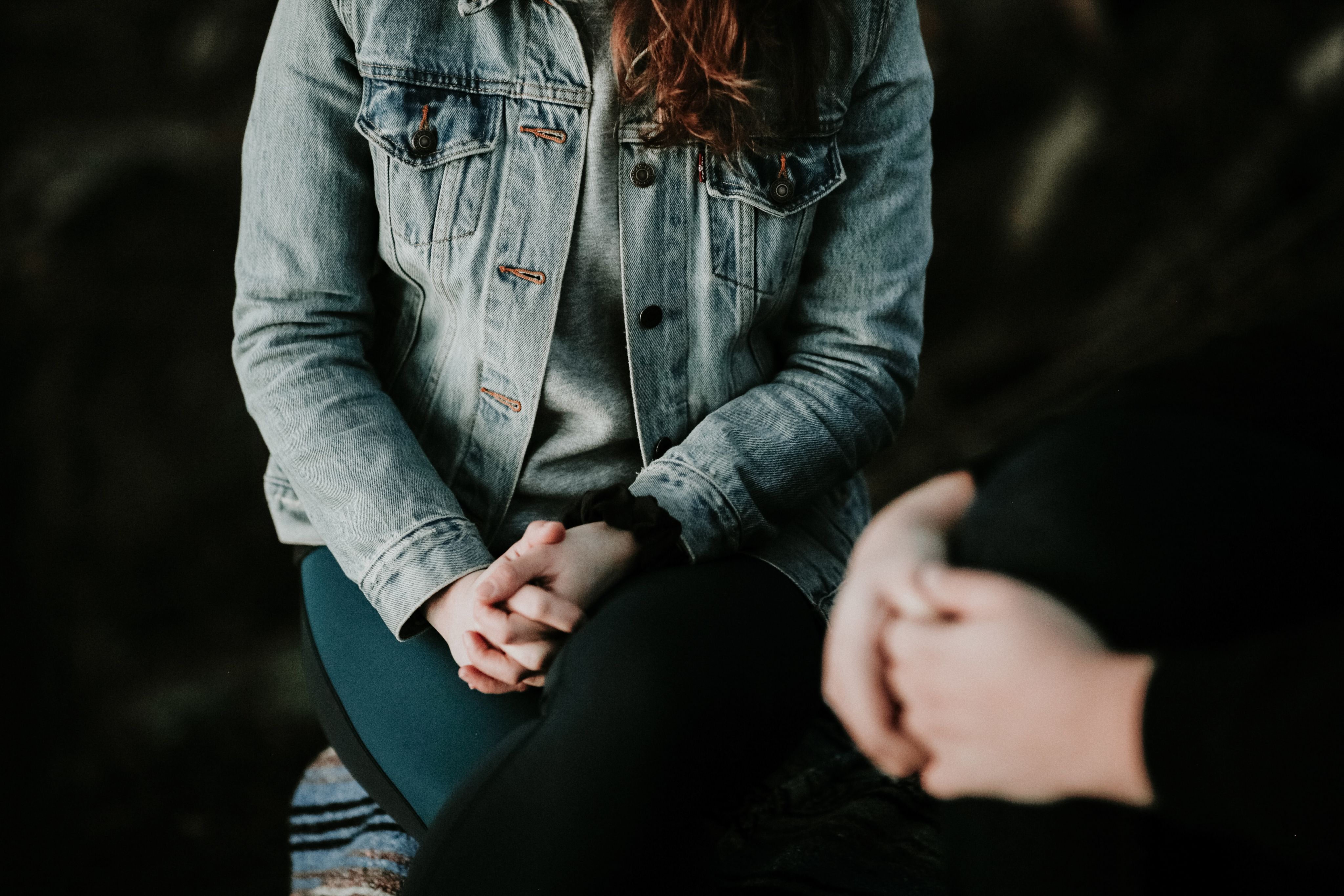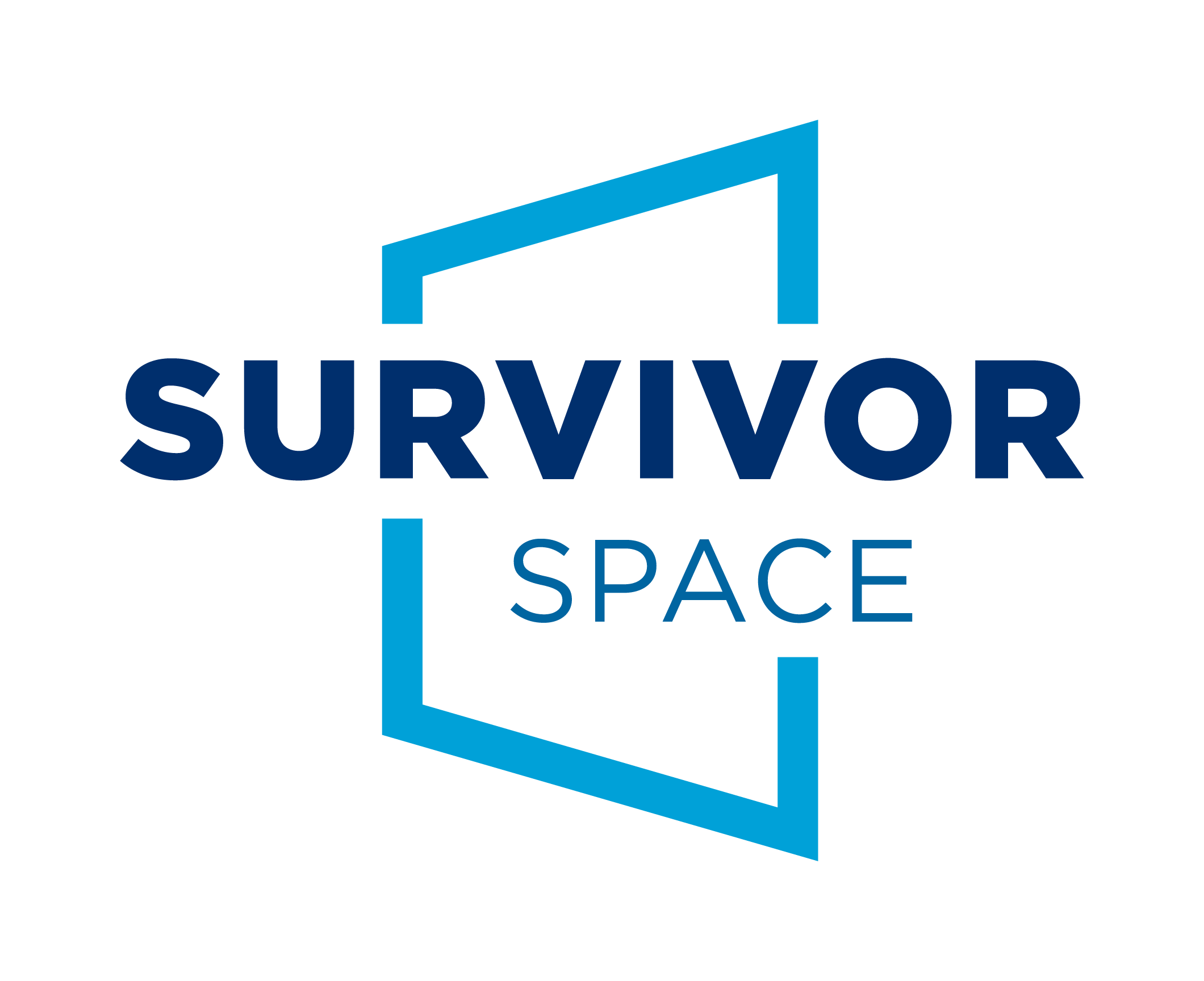Therapy
Each survivor’s experience is unique, and so is their healing journey.

Years after my traumatic events, I reluctantly went into therapy. My approach to treatment was filled with the expectation that the person in charge would CHOOSE for me the best procedure, which repositioned me as a powerless entity--again. I willingly gave my power to the therapist every time and did what the therapist prescribed without voicing what I thought I needed.
Most of my trafficking and abuse happened throughout my high school years, four years of trying to comprehend and understand the meaning behind the events and figure out the shame, guilt, embarrassment, and depression that came along for the ride. I never sought professional help at the time for several reasons:
- I thought, like all teenagers, I could handle it.
- I did not know there were resources or services available.
- I faced fear because some of my traffickers were therapists and medical professionals.
Also, at the time, therapy for me encapsulated forgiving—a spiritual process that I was not quite sure I was ready to tackle. I felt that I was constantly sinning and reminded by my religious father that according to the Bible, I was an “abomination.” Even with the exterior limitations, my internal conflict contained confusion about why God allowed these traumatic events to happen in the first place, especially since I saw myself as a good child, caring, polite, and full of energy, dreams, and ideas. I was very malleable, and maybe that was my issue. Although I followed the beat of my own drum, I still wanted to please my parents, teachers, coaches, preachers, and any adult figure.
I also wanted to please the therapist. Initially, I was turned away from several therapists when I disclosed that I was a male sexual abuse survivor. There were no explanations, just that the office was not taking on new clients or there was no fit. I converted these general excuses inward, supporting my belief that I was unimportant. And when I did find an accepting therapist, I spent the whole time providing them with details of the events and feeling like I was more like a specimen for research than a human being. I found it extremely difficult to constantly sit there and explain that I could not remember all the details and felt uncomfortable reliving the events. The disregard for revictimization caused me to become highly defensive, and I thought I needed another therapist to help me after these therapy sessions. Several therapists seemed to take advantage of the situation and, after several sessions, projected their feelings onto me and revictimized me again. I quickly discovered that if I presented and displayed myself the way the therapist wanted, I could get through the sessions quicker and appear cured.


Photo by Nathan Dumlao on Unsplash
Photo by Nathan Dumlao on Unsplash
I found something that worked for me when a friend introduced me to the Self-Talk Institute pioneered by Dr. Shad Helmstetter. Working with a certified Life Coach, I learned I was born with everything I need to live my life in remarkable and worthwhile ways, that it doesn't matter what happened to me in the past; I can, if I choose, change beliefs and my life. What the adults (in my life) have told me, what I perceived about myself, and the negative thoughts and stories I invented, have had incredible and vital effects on who I am today. I could progress from where I was emotionally and mentally and did not have to return to the traumatic events until I was ready. I quickly realized I had created a false self by listening, adapting, adopting, interpreting, and downloading negative thoughts and ideas from those around me and myself. I reinforced these ideas by trying to comprehend and understand why the abusers chose me and attempting to appear normal in everyday life. If I changed my self-talk, I could change my beliefs, and I could change my life.
I quickly realized that I allowed others, like my abusers, to program me in ways that best fit their needs, casting me into the belief that I did not matter and the only thing I was good at was fulfilling someone else's desires at a high cost to myself. When I realized I had a choice, no matter what happened before, I could take my life back by changing my self-talk. Self-Talk changed my life, and I have become so passionate about it that I became a certified Trainer and Life Coach to help other survivors.
I was curious about how therapy has helped other survivors, so I contacted the following courageous people and asked three questions.
John Callas, Mental Health Expert, and Award-Winning Hollywood Director, Writer, and Producer
Nathan Earl, Public Health Consultant, Human Trafficking/Violence against Men and Boys; MPH Candidate, Yale School of Public Health, C/O '24
April T. Giauque, MSED, Ghostwriter, Editor, Speaker, Podcaster
Gigi Kilroe, Survivor, Author, and Speaker
Kelly Gee, Executive Director for Survivors for Change, Athlete, Survivor
What type(s) of therapy, if any, have you used in your healing journey?
John Callas: “I participated in both individual and group therapy.”
Nathan Earl: “Logotherapy was the most beneficial. I also found CBT and
EMDR useful.”
April T. Giauque: “My therapy was faith, family, and a 10-week free counseling session in college. Faith because I knew my Heavenly Father knew who I was when I was three. I always prayed and knew that He listened to me. I saw and witnessed miracles that built my testimony and witness, and He took me away from that situation.
I remember Heavenly Father prompting me to write out my feelings in a journal. Through the words, I could write out the pain and confusion and then leave it on the pages—it would be out of my head, and God would help much of it out of my heart.
I also started reading scriptures on my own. I remember reading about His power and His strength. I read how to grow my faith in Him, and how if others hurt little children, there would be a millstone, and He would take care of it. In my twenties and thirties, it helped with that, and I trusted in Him that He would take care of it.
I’ve never tasted alcohol, drugs, tea, coffee, or tobacco. His guidance ensured I never partook of these additive agents because I understood those substances would try to control me. I was told in prayer that if I started down that path, I would seek out more and more of them until I would be consumed by addiction. So, I never started. My mind has never known the fog of that, and I have been able to stay connected to hear Him.
My parents became therapy to me because I could trust them with physical hugs and a listening ear, and they had a home that was always safe. When I crossed the threshold of my house, I felt that the darkness would never touch me there—and it never did.
My parent's love, hard work, and faith filled me with safety. I never told my parents what the neighbor had done to me; I had already expressed it in journals. I never shared it with them, not out of fear, but I never wanted to spoil the safety and love I felt there. It was a sacred and safe place. Why would I want to defile it with that ugliness?
In college, I learned about counseling and tried the ten weeks offered to each student. I entered those sessions not knowing what to expect, but I felt prompted by Heavenly Father to go. Since I trusted God, I went. I remember her questions helping me to think and be honest with myself.
I was struggling with letting a few of the deeper hurts go. Saying the words out loud was immensely clarifying the more profound pain, and I learned more about letting go of trying to control the food I ate and fully trusting that I would know how to bend and flow with life but hold firm boundaries. That helped me through my eating disorder, and my faith grew even more as a result.”
Gigi Kilroe: “I worked one-on-one with a female therapist for traditional therapy. I feel very fortunate because she was the first person I visited, and I clicked with her. I immediately thought she was someone I could be completely honest with and trust.”
Kelly Gee: “I have primarily used CBT as my platform for therapy. I regularly practiced yoga and meditation for many years, and the results were prolific. Unfortunately, with the cost of classes, this became less and less available to me. My goal is to combine practice with regular therapy sessions for a holistic approach to my healing journey.”


Photo by charlesdeluvio on Unsplash
Photo by charlesdeluvio on Unsplash
How was the therapy beneficial? How was it not beneficial?
John Callas: “The individual therapy was beneficial once I found the right therapist. I tried several and was unhappy with the process they offered and did not feel safe with them. A friend introduced me to a woman therapist I found very supportive, helpful, and engaging; she made me feel safe. The ones I mentioned earlier were not beneficial and almost made me stop wanting to seek therapy as a tool. Fortunately, the recommendation from my friend was what I wanted and needed. After working with her for a while, she suggested joining her group therapy. I was reluctant to go into group therapy because being honest and open about my abuse was a challenge. It scared me to be in front of people I didn’t know. Why would I want to share my pain with others? How would that help me? – She took me through the process explaining how it works and the potential benefits. She offered a session where I could sit and listen to see if I would want to join. Reluctantly I accepted the gesture. At my first session, they went around the room, and each person had time to say what they were going through, a win, a challenge, and other issues or feelings they had in the past week. I started to relax when I saw the kindness within the group. They all seemed okay with talking about what was in their hearts and the pain they endured. Then one of the participants asked if I would like to say anything. I wasn’t prepared for that, but for some reason, it felt safe. I told my story, waiting for…, I don’t know what. My insecurities rushed to my head, ‘what did I just do?’ Instead, there was overwhelming support and validation about how I was feeling. I felt the world's weight coming off my shoulders, having told my journey in front of others. It was one of many life-changing steps in my recovery. I continued with the group, and after a period, we were all laughing together and exclaiming that we were all happy neurotics. It was a cathartic moment that we didn’t take lightly at the ‘neurotic’ comment. The intention was to say we were all okay and on the right journey to healing.”
Nathan Earl: “It allowed me to understand there may be meaning behind the trauma...if I chose to assign meaning to it. It also helped me cope with trauma and subsequent life challenges and successes. Additionally, it helped manage co-occurring substance dependency / mental health disorders. It was not beneficial when a counselor threatened to report a positive drug urinalysis to my probation officer if I did not engage with him in sexual activities. It took me a very long time to trust therapists after that.”
April T. Giauque: “The combination of faith, family, and that counseling session set me on a pathway of knowing how to find help and healing for other battles I would face. I benefited from trusting His promptings and knew that healing journeys take time and that it all works out through Him and time. The most significant benefit of having faith is always praying, and He is there. I have learned how to ‘hear Him.’ When I follow, I feel peace no matter the situation.”
Gigi Kilroe: “It was beneficial on every level for me. She helped me to see my strength as a woman and a survivor. As we know, the healing journey doesn't happen in a straight line; knowing I had an appointment with her weekly or every other week was such a comfort for me.”
Kelly Gee: “Therapy has been a lifechanging experience for me. I took time to find the right person to fit my personality, complexity, and specific needs. Once he and I met, I immediately knew I found a unique and rewarding fit for CBT therapy. I knew better going in than to expect it to be anything but a long road, which is a difficult mindset to commit to. It took about eight sessions to see real-time benefits from the commitment before I realized how much I was already starting to heal. I now look forward to every session, even the difficult ones. I believe in the power of therapy and its ability to help anyone from any walk of life learn more about themselves and their lives. It opens doors that would otherwise never be open.

Photo by Nischal Kanishk on Unsplash
Photo by Nischal Kanishk on Unsplash
Have you tried any alternative approaches to therapy, and if so, please share and how did this approach benefit you?
John Callas: “I tried to journal to see what was on my mind. I bought a book, The Artist Way, which suggested writing three pages daily for one week, then going back and seeing the common threads. I started it and instead of 12 weeks, it turned into 12 months. To this day (some 15-20 years later) I still have not gone back to read what I wrote. The writing (as a writer, I understood what I had accomplished) was temporary for me. It gave me a tool to express whatever was on my mind that day. What I found happening after 12 months was, I still had more questions about my abuse and other traumas that the writing couldn’t answer but gave me relief to express. While it didn’t answer those tough questions, it offered a way to relieve my thoughts and see what was next.
When I moved to Colorado to college and found a place in the mountains, I met a man, OB (affectionately called), who I confided in about my issues. He took me under his wing and taught me to meditate. He also guided me to learning the truth about what happened to me that caused the traumas and ways to learn to forgive myself. It was a significant turning point in my recovery. Meditation worked for me, but it may only work for some. We all must find what works best for our recovery journey. We are alone but also together. We are alone in our trauma and together in helping each other along the way."
Nathan Earl: "Victor Frankl's Logotherapy was instrumental. Animal therapy, creative/expressive therapy, and spirituality have also been beneficial."
April T. Giauque: "I haven't tried any other approaches. I have never tried anything else. I have heard of different approaches, but I felt prompted to continue praying, reading scripture, worshiping, and serving and loving others, so I do that."
Gigi Kilroe: “I have not tried any other types of therapy.”
Kelly Gee: "For many years, I participated in neuro-biofeedback therapy through an incredible therapist in the Chicago area. I suffered from post-concussion syndrome and struggled with everyday life and basic functions. With a dedicated regiment that included CBT, my life was saved from a very dark place I was in between the sexual abuse trauma and mild traumatic brain injuries (mTBI) I suffered as a combative athlete."
Every survivor's story is unique and personal, as is their healing journey. No one therapy approach can serve every survivor. It is the survivors' responsibility to voice their needs and what works best for them.

Other types of therapies can be beneficial:
- Animal Assisted Therapy
- Art Therapy
- Attachment, Self-Regulation, Competency (ARC)
- Cognitive Behavioral Therapy (CBT)
- Cognitive Processing Therapy (CPT)
- Comprehensive Resource Model (CRM)
- Dialectical Behavior Therapy (DBT)
- Eye Movement Desensitization and Reprocessing (EMDR)
- Internal Family Systems (IFS)
- Play Therapy
- Self-Talk Institution
- Sensorimotor Psychotherapy (SP)
- Somatic Experiencing (SE)
- Trust-Based Relational Intervention
- Trauma-Focused Cognitive Behavioral Therapy
- Yoga Therapy
Resources:
John Callas, https://johncallas.com/las
Nathan Earl, https://www.linkedin.com/in/nathantearl/
April T. Giauque, MSED https://www.linkedin.com/in/april-tribe-giauque-msed-455578145/
Gigi Kilroe, http://gigikilroe.com/
Kelly Gee, https://www.survivorsforchange.org/
The Self-Talk Institute, http://www.selftalkstore.com/
The Self-Talk Plus App, https://www.selftalkplus.com?utm_refer=Jmla

About the Author:
John-Michael Lander is a Survivor, Advocate & Public Speaker
He is also the founder of An Athlete's Silence: www.anathletessilence.com

Published by SurvivorSpace, an initiative of Zero Abuse Project
